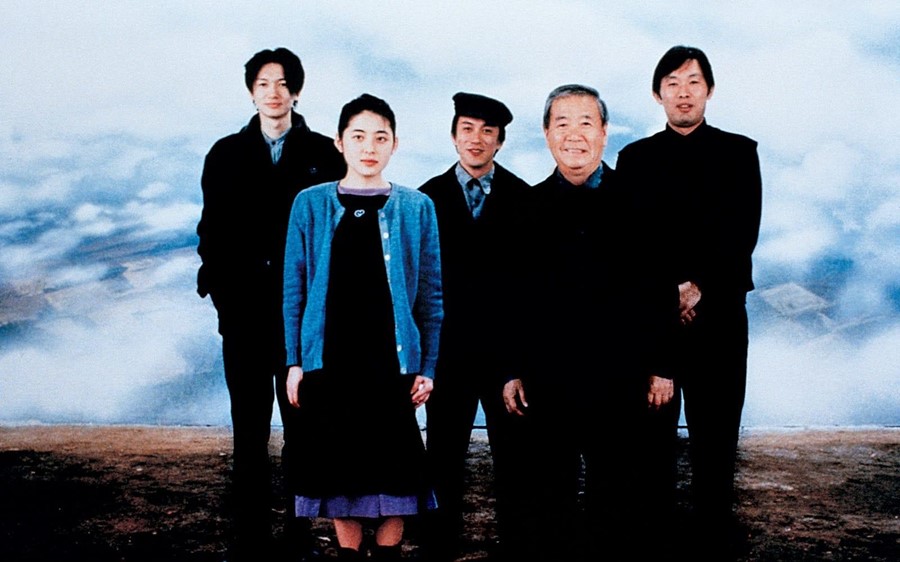And as his latest TV drama A Day Off Of Kasumi Arimura premieres at the BFI London Film Festival this Saturday, we reflect on five masterworks of a director who remains at the forefront of Japanese filmmaking in 2020
Bong Joon-ho’s Oscar sweep for Parasite was heralded as a watershed moment for South Korean cinema back in January 2020. But barely 18 months earlier, a film of a similar premise marked a contemporary highpoint for Japanese cinema in the West after taking home top honours at Cannes 2019.
Shoplifters was the first Japanese film to win the Palme d’Or in over 20 years; an unexpected triumph that Jury president Cate Blanchett said “completely bowled over” the voting panel. A masterfully poignant drama about a poverty-stricken family on the streets of Tokyo, Shoplifters feels somewhat overshadowed by director Bong’s outrageous successes in 2020. But director Hirokazu Kore-eda has, in fact, been turning in masterpieces for even longer than his Korean counterpart.
After honing his craft as a documentarian and a television director, Kore-eda released his fiction feature debut Maborosi in 1995, and quickly became identified by Western critics as a key proponent of Japan’s ‘New Wave of the 90s’. His thoughtful and meditative works initially drew comparisons to the tender family dramas of Yasujirō Ozu – a leading filmmaker during Japan’s Golden Age of Cinema in the 50s. But in the years since, he’s expanded his filmmaking style considerably.
A gentle sense of pacing, a focus on the intricacies of familial relationships, and a consideration for the small joys in life remain the heart and soul of Kore-eda’s understated cinema. And as his latest TV drama A Day Off Of Kasumi Arimura premieres at the BFI London Film Festival this Saturday, we reflect on the serene masterworks of a director who remains at the forefront of Japanese filmmaking in 2020.
After Life, 1998 (lead image)
The film that brought Kore-eda widespread international recognition is built on a unique premise. What if, upon death, you’re sent to a purgatorial social services centre to decide upon a single happy memory to take into the afterlife?
Inspired by Without Memory, Kore-eda’s 1994 documentary about a man with a neurological disorder that disrupts his ability to form memories, After Life manages to be both lightly comical and dramatically poignant as it examines what may be the only true “eternal life” after death.
The film is particularly memorable for its montage sequences, which combine real-life interviews with dramatised performances, as a colourful cast of troubled teens and elderly grumps answer the film’s central question. Answers include a memorable meal, a trip to Disneyland, and memories of young love. Either way, savouring the good times is a sentiment that lingers in the mind long after the credits roll.
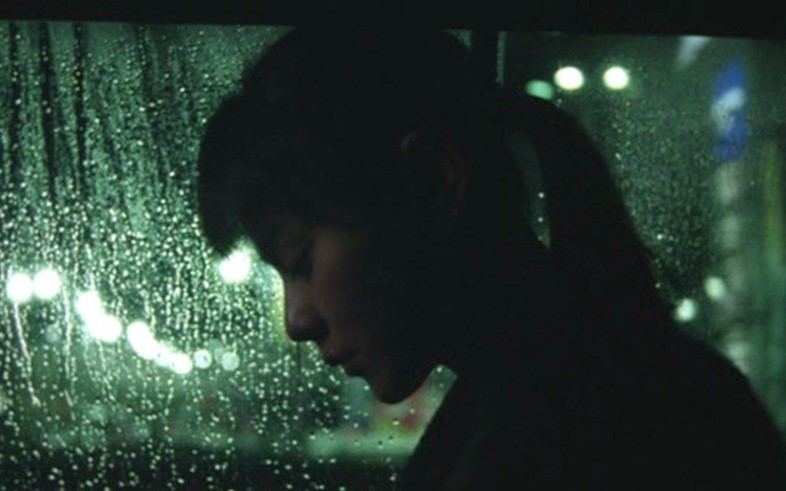
Maborosi, 1995
The tender romance between a married couple is cruelly torn to pieces when husband Ikuo (played by future superstar Tadanobu Asano) suddenly, inexplicably takes his own life on his way home from work. Doting wife Yumiko, now a widowed single mother, grieves her loss, before eventually remarrying and relocating to a quiet coastal village. But her quest for happiness is hampered by the weight of tragedy that she bears on her shoulders, in this meditative drama about unresolved emotional trauma.
Kore-eda’s fiction feature debut borrows heavily from the book of Ozu. He almost entirely eschews any form of camera movement across this film’s 109-minute runtime, instead choosing to focus on a rich mise-en-scene to fill every shot. Shot in rich, green hues, Maborosi almost feels like a visual painting at points, as lingering stills of deserted train platforms, sleepy harbour shores and lush green countryside mark Yumiko’s journey. It won the Best Cinematography award at Venice as a result, highlighting the crux of Kore-eda’s spellbinding craft from the offset.
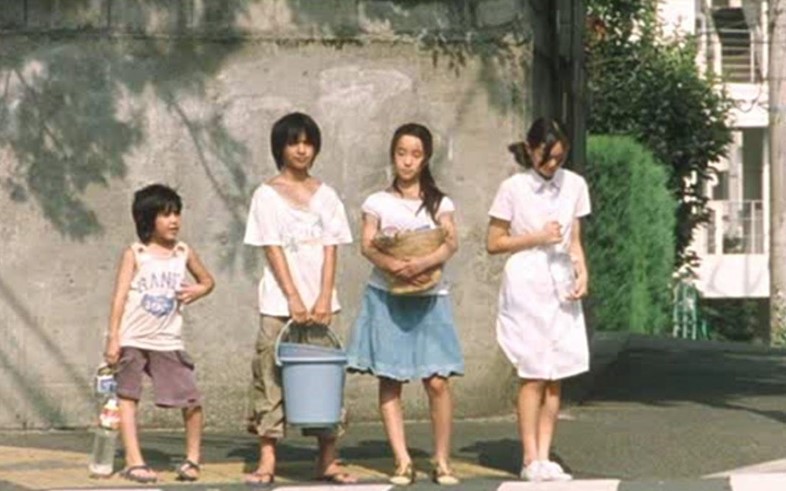
Nobody Knows, 2004
Inspired by the 1988 Sugamo child abandonment case in Osaka, Nobody Knows follows the lives of four children struggling to survive in a tiny city apartment after being abandoned by their mother. As 12-year-old Akira fends for his young family using the small amount of cash left to them, their dwelling grows increasingly unsanitary as they survive on expired convenience store sushi and cup noodles.
While stylistically a more dynamic piece of filmmaking than his Ozu-indebted early works, Nobody Knows offers an unforgiving view of the hopes of a vulnerable family unit. It’s the focus on children that makes it all the more heartbreaking, and a powerful lead performance by Yuya Yagira would make history when he became the youngest actor to win the Best Actor award at Cannes in 2004.
Shot over a full year, the film, at times, feels more like an observational documentary than a drama, making the enchanting highs blissful, and the tragic lows devastatingly bleak. 15 years on, it remains Kore-eda’s most emotionally captivating work.
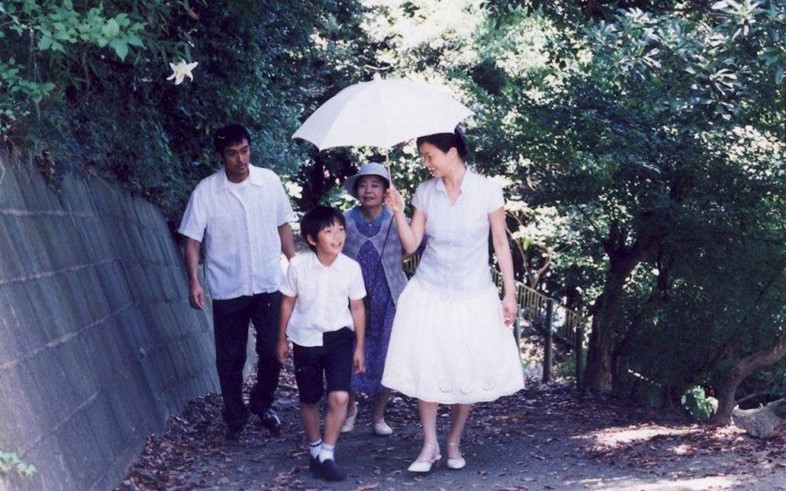
Still Walking, 2008
Still Walking’s focus on the gentle tensions of a rural family reunion is effective precisely because of its subtlety. And while there is precious little plot to be found over the film’s 24-hour timeframe, there is plenty of drama in the simple acts, such as the preparation of corn fritters in the kitchen.
The dining table is a central setting in Still Walking, as the audience is encouraged to contemplate lessons about life, the past and the future through three generations of the Yokoyama family. The patriarchal figure, Kyohei, a miserly retired doctor impenetrable by his kin, represents the changing of values with time, and he rues the loss of his place in society. But through the family’s youngest member, Atsushi, who is exposed to all manner of potential role models throughout the day, a multitude of futures and opportunities can be humbly observed.
By the time the film reaches its understated conclusion, there is little catharsis to be found. But a central metaphor about old butterflies changing colours with the seasons, at least, provides some hope for the family in the future.
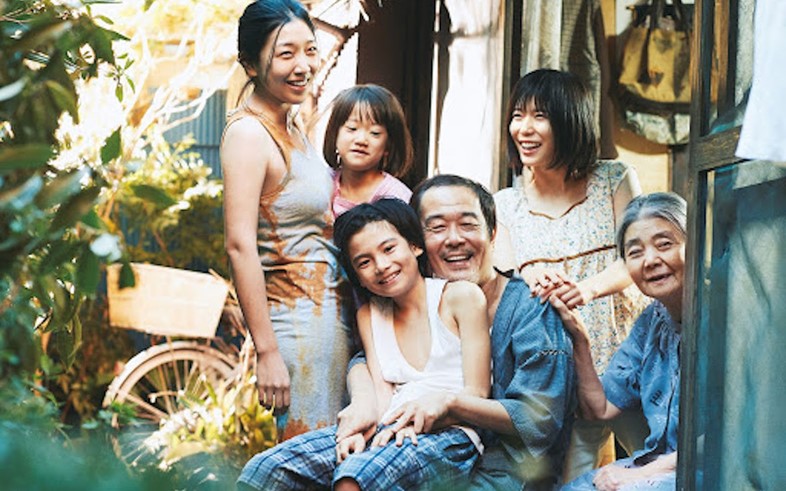
Shoplifters, 2018
Cannes Jury president Cate Blanchett described Shoplifters as “one of the quietest, loveliest and most emotionally enduring films in the competition” in 2018. But with its vibrant cinematography, vivid, urban setting and captivating performances, Shoplifters may actually be the magnum opus of Kore-eda’s canon; a masterful display of craft, and a text that goes all the way back to his roots.
A bittersweet exploration of the bonds that tie a homeless “family” together in the underbelly of an unnamed metropolis, Shoplifters, at times, almost feels like a fairy tale. The blossoming relationship between Dickensian crook Osamu and the neglected toddler Yuri (whom he essentially adopts) is one of the film's central charms to the end. But Shoplifters takes place in the real world – something made evident by its documentary-style camerawork. And when the social services catch wind of this ramshackle band of waifs and strays, things don’t turn out the way the viewer might hope.
Earning 4.6 billion yen at the domestic box office, $77 million worldwide, and picking up a nomination for Best Foreign Film at the Oscars in 2019, Shoplifters is at the very apex of Japanese filmmaking today. In a watershed year for East Asian cinema in the West, there is no better place to start than here.
